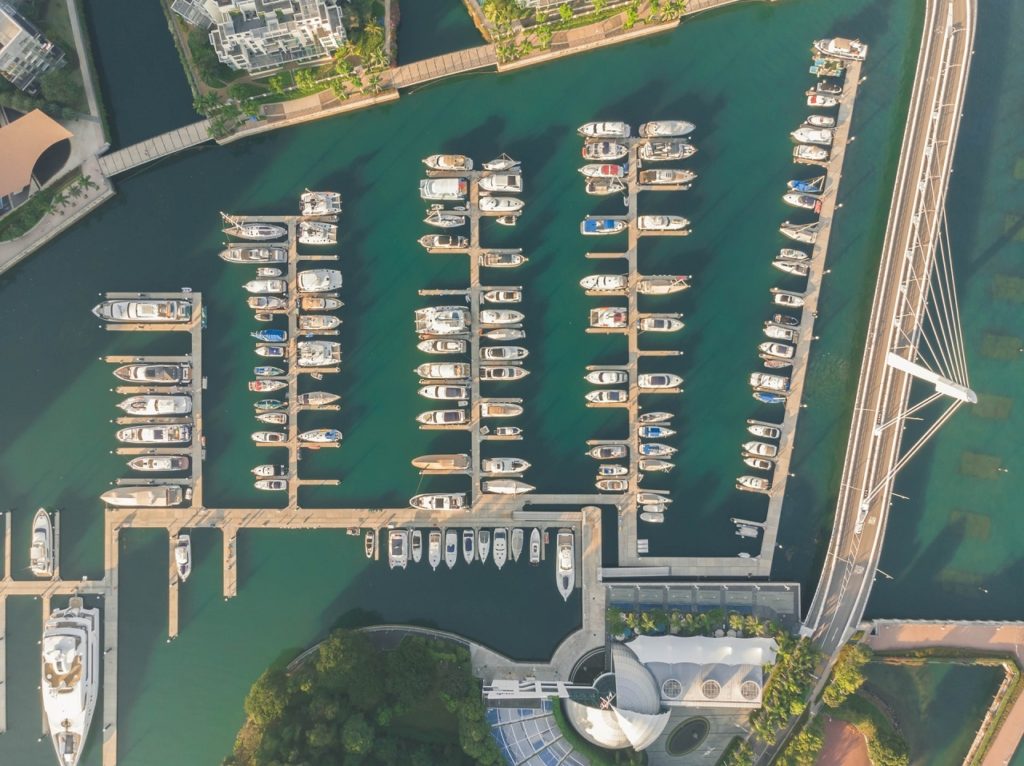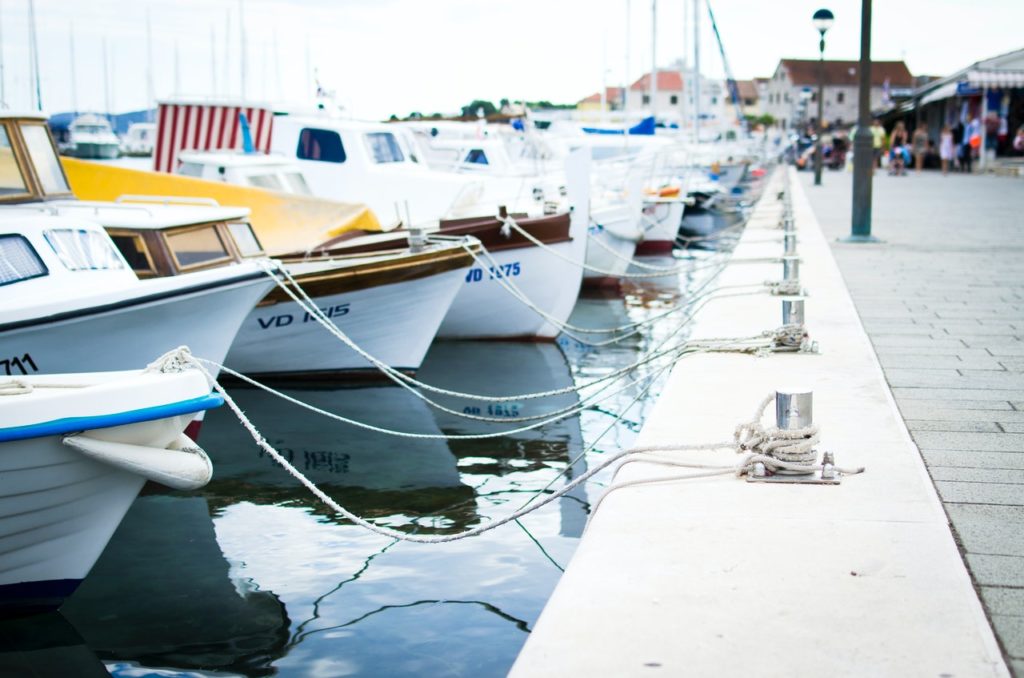The fact that you got hurt at a boat marina doesn’t necessarily mean that anyone was negligent. The rule of thumb when it comes to pursuing such lawsuits involves proving that your injuries were the result of another party’s negligence. That had the circumstances been better; the injury in question would have never resulted.
The term “negligence” as used here refers to one party’s failure to exercise a “reasonable amount of care.”
There’s a lot that goes on at a marina at any given time. So, there several things that could potentially go wrong, resulting in injuries of some form.
In such instances, the question is – Can you sue a boat marina for negligence? Here’s everything you need to know about marina liability.
What Is a Marina?
First, let’s look at the legal definition of a marina. The term refers to a place, building, or structure located on a navigable waterway (although this doesn’t always have to be the case) that contains docking facilities. It is a place where boats and related boating accessories are stored safely, repaired, serviced, or parked for sale.

Consider the following scenarios:
- You hire a boat mechanic based at your local marina to repair your vessel. In the process of test driving it, they end up losing control, and the boat hits a dock right after bouncing off another vessel. Your boat not only ends up sustaining a substantial amount of damage, but it also damages the two boats that were adjacent to it.
- Intoxicated partygoers on a boat at your marina end up wreaking havoc and vandalizing your vessel. In your opinion, the security personnel at the marina did not intervene in time to stop the destruction.
- You hire a dockhand at your marina for the summer. When fueling up your boat, they accidentally fill up your water tank with gas and the gas tank with water.
These three scenarios demonstrate some level of negligence. Naturally, it would appear that the marina is at fault. But, it’s not always that straightforward.
Damage Responsibility Agreement
More often than not, suing the marina operator is a lot harder than it sounds – even in instances where you were not involved in the damage your vessel sustained or caused to another boat.
This is precisely why you need to examine your marina contract’s fine print to understand what it covers before you sign on the dotted line. Most of them contain phrases like –
“… by signing this contract, the owner of the vessel fully agrees to release the marina from any loss or liability for damage to the vessel, for any acts including any omissions or negligent acts committed by the marina or its personnel…”
You can immediately see how suing a marina for negligence would be a herculean undertaking since the damage responsibility agreement you might have signed releases the marina from any loss, expense, or damage to the vessel while it is docked at its facilities.

The marina rights and protections, however, only apply in scenarios where the gross negligence was not involved. If a marina employee, for instance, was driving your boat while drunk and, as a result, crashed into another vessel causing damage to both of them, it would be considered gross negligence.
Why? The employee in question acted in voluntary and conscious disregard of the need to exercise “reasonable care.” In such circumstances, you can sue the marina for negligence.
Marina Operators Legal Liability
A marina operator is responsible for making sure that the vessels that make use of its facilities have a safe berth. So, they need to inform the vessel operator of any potential deficiencies or hazards in the marina or berth that may harm the vessel.
When marina operators fail to do this clearly and concisely, they become liable for any damage the docking vessel incurs as a result of this non-disclosure.
Marina operators’ legal liability insurance coverage is designed to protect them against the liability exposures that come with their line of work. The coverage insures against exposures relating to the care, custody, and control of waterborne vessels docking at the marina.
So, if you’re a marina owner or operator, your marina insurance policy covers all legal liabilities that you may incur for:
- The repair and maintenance of, and/or alterations made to third party vessels or any other property that’s under your care
- The storage of boats at your marina
- The mooring spaces, slips, or buoys rented by the marina
- Launching or hauling out vessels but not in connection with 1) or 2)
- Miscellaneous servicing and fueling
If you’re a boat owner, you need to examine your marina insurance contract to ensure that it covers any damage or loss that arises from any of the aforementioned activities at your local marina. Confirm that there are no clauses in the policy that may exclude your claim.
Marina Slip Contracts
A marina slip is the part of the pier where a boat is moored or berthed or used to embark or disembark from the vessel. Marina slip contracts are generally very specific about what you can / cannot do with the slip you use. It outlines the fees you have to pay, the activities you can / cannot engage in at the slip, conditions on subleasing, etc.
If you’re using the marina facilities, you need to check that the provisions of the slip contract you sign are free from so-called “risk-shifting” language. Such contracts may shift the responsibility for the resulting damages to you or your insurance provider even when the cause of the damage is the direct result of the marina or its personnel.
It is always a good idea to retain the services of the best maritime law firms in your locale to examine such contracts. That way, you can avoid devastating financial consequences in the future.
What Is Admiralty Law?
Admiralty and maritime law both refer to the same thing. It is a combination of both the US and international laws that encompass injuries, offenses, torts, or contracts that occur on navigable waters.
Traditionally, maritime law has always focused on issues that center around oceanic matters. However, it has since expanded to include any body of water that would be considered public – including rivers and lakes.
Admiralty laws generally look at the interaction between two or more water vessels, the vessel captain’s responsibilities and obligations to the passengers and their crew, the rights of each of these entities, and any other related legal issues.
These cases are usually heard in federal district courts, although it is not uncommon for such matters to be brought to state courts.
When in Doubt, Consult a Lawyer
Can you sue a boat marina for negligence? Well, it depends on the nature of the negligent acts.
You can file a lawsuit if you can prove gross negligence on the part of the marina and its personnel. This means that they need to have acted in voluntary and conscious disregard of the need to exercise “reasonable care.”
Ensure that you retain the services of a competent maritime lawyer to examine your damage responsibility agreement before you sign it. The failure to do so could cost you in the long run.
If you have any legal questions related to maritime law, chat online with a Laws101.com attorney.
